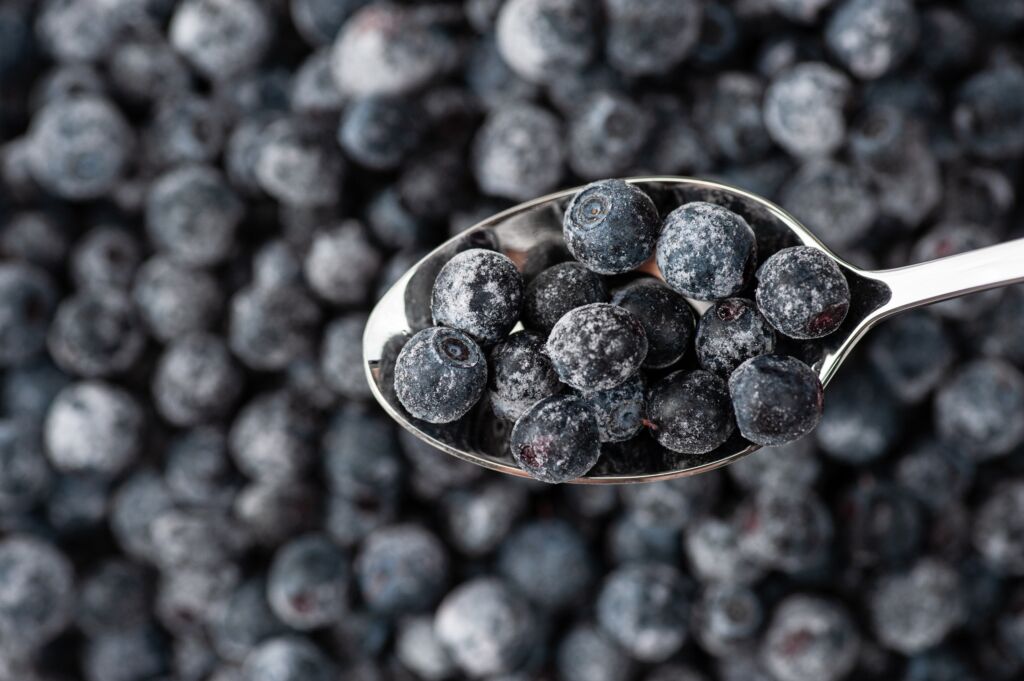08.01.2024
Frozen berries
Poland is still number 1 in the export of frozen berries and the world leader in the export of bilberries.

In the export of frozen berries to European countries, Poland is the clear leader. According to Eurostat data, we are ahead of other European countries, as well as exporters of these products from other continents.
For a decade, Poland has been able to boast of an increase in the export of frozen fruit. However, over the last 10 years, dominance of our frozen strawberry has decreased significantly. The production of industrial strawberries and raspberries has decreased, caused by the expansion of these fruits from Ukraine and North Africa. We are still successfully competing in the production and export of currants, however, we are the leaders in the export, especially blackcurrants and blueberries.
Exports of Polish frozen berries in 2022 amounted to 197.4 thousand tonnes, and in the 3 quarters of 2023 alone – 152.65 thousand tonnes.
Our fruits are appreciated on foreign markets for their good quality, natural aroma and flavours, as well as our pro-ecological approach to their cultivation. They are mostly grown on family farms, passed down from generation to generation, based on traditions and care for the land. Polish plantations use far less chemicals, artificial fertilizers and limit plant protection products.
Polish Frozen Bilberries
According to the Central Statistical Office, in 2022 Poland exported 29,712.4 thousand tonnes of bilberies. Our products have been sold directly in 49 countries around the world, from where they have also been re-exported.
The largest recipients of these fruits were Germany, where 3.8 thousand tonnes were sold. The Netherlands came second (2.1), followed by France (1.7), Lithuania (1.65), Belgium (1.5), Sweden, Norway and Denmark.
In the first three quarters of 2023, bilberry exports amounted to almost 11.9 thousand tons, with the largest recipients being Germany (2,488), Belgium (1,977), the Netherlands (1,973), France (1,864) and Sweden (0,863).

The American company Global Market Insights Inc. in its report states that by 2027 the fruit and vegetable processing market is expected to grow by 63% and reach the level of over USD 467 billion. The growth is expected to be seen in every region of the world. This will be driven by increasing purchasing power, rapid urbanisation and a progressive change in eating habits. Preference for ready-to-eat, healthy and packaged or just frozen foods. The largest growth is expected to be recorded among consumers in the North American and Asian markets.
Nutritional values of frozen fruit
Fruits intended for freezing are harvested at the stage of optimal ripeness and usually frozen within a few hours of harvesting. So they retain their nutrients and taste. The vitamin C content of fruits generally begins to decline as soon as they are harvested. Low temperature slows down this process. A 2015 study in the Journal of Agricultural and Food Chemistry found that the vitamin C content of samples of, among others, frozen strawberries and blueberries showed no major differences compared to fresh fruit. And a South Dakota State University study showed that the antioxidant potential of blueberries rich in health-promoting anthocyanins is even higher in frozen fruits. This is of great importance in protecting our health, mainly against the development of certain cancers and intestinal diseases, as scientists from Harvard Medical School assure. This is also true in protection against certain viruses.
Frozen fruit therefore retains its nutritional value, taste and colour. However, it should be remembered that they should not be heated, defrosted at room temperature or covered with sugar. Ideally, in order for them to retain most of their beneficial properties, they should be defrosted gradually. The process should take between 10 and 18 hours. It is therefore recommended to take them out of the freezer but leave them in the refrigerator.
With an aim of caring for our health, frozen fruits, especially berries, should be present in our everyday diet, especially in winter.
Source: Central Statistical Office, Eurostat
Spis treściTable of contents
- Everything
- News (15)
- Events (12)
The Export Promotion Portal uses cookies to make it easier for users to use the website and for statistical purposes. If you do not block these files, you agree to their use and saving in the memory of your computer or other device. Remember that you can change your browser settings to block the storage of cookies. More information can be found in Privacy Policy and Terms and conditions.







